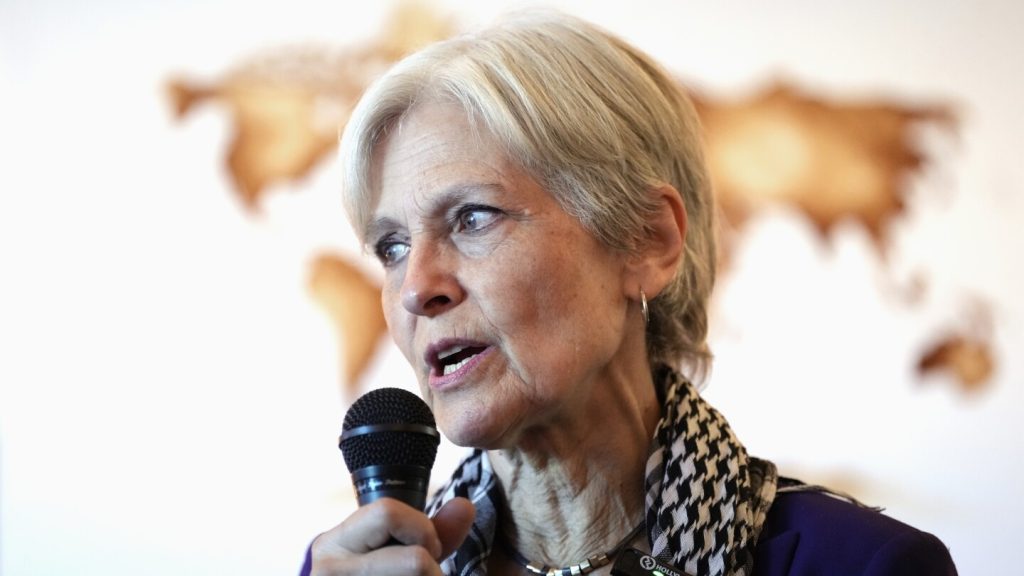The Democratic National Committee is spending around $500,000 on digital ads aimed at persuading voters in battleground states to reject third-party candidates Jill Stein and Cornel West. The ad campaign targets younger voters and college campuses, warning that a vote for Stein or West will ultimately help Republican Donald Trump. Democrats are focusing on preventing a repeat of narrow losses in past elections, which they partly attribute to support for Green Party nominees. They have previously pushed back against other third-party movements and independent candidates before turning their attention to Stein and West.
Stein, the Green Party nominee in 2016, garnered 132,000 votes across key states like Wisconsin, Michigan, and Pennsylvania. Given that Democrat Hillary Clinton lost in those states by a combined 77,000 votes, the Democrats are concerned about the impact of third-party candidates like Stein. This year, Stein has expanded the Green Party’s base by criticizing Israel and its military actions in Gaza and Lebanon. During a recent appearance at a coffee shop in suburban Phoenix, Stein emphasized the importance of voting for what supporters truly want, despite pressure to choose the “lesser evil” between Trump and Democrat Kamala Harris.
Stein believes that Trump and Harris are both “genocidal candidates” due to their support for Israel, and she sees voting for either of them as having potential negative consequences. Her campaign manager, Jason Call, was more direct in his criticism of the Democratic ticket, stating that they want the Democrats to lose because “genocide deserves losing.” Call argued that while many may not want Trump to win, the ramifications of another Democrat in the White House could be even worse. Stein and her team see the Democratic campaign against them as a threat to free speech and remain steadfast in their belief that voting for what one truly wants is essential for a functioning democracy.
The pushback from the Democrats against Stein and West’s campaigns highlights their concern about siphoning votes away from their candidates in key battleground states. By targeting younger voters and college campuses through digital ads, the Democrats are hoping to dissuade left-leaning voters from supporting third-party candidates. Stein’s critiques of Israel and support for Palestinians have drawn attention to her campaign, as she navigates the accusations of being a spoiler in the upcoming election. Despite the pressure to conform to the two-party system, Stein and her team remain committed to advocating for what they believe in and encouraging others to do the same.
As the election draws near, the impact of third-party candidates like Jill Stein and Cornel West on the outcome remains uncertain. The Democrats’ aggressive campaign against these candidates reflects their determination to prevent history from repeating itself in terms of narrow losses caused by third-party support. Amidst accusations of being a “spoiler,” Stein and her team continue to advocate for their platform, emphasizing the importance of voting for what one truly believes in, even if it goes against the mainstream narrative. With the stakes high in this year’s election, the battle between the major parties and third-party candidates adds another layer of complexity to an already contentious political landscape.














